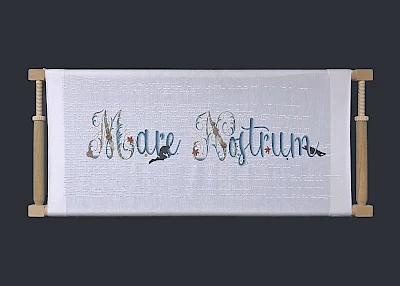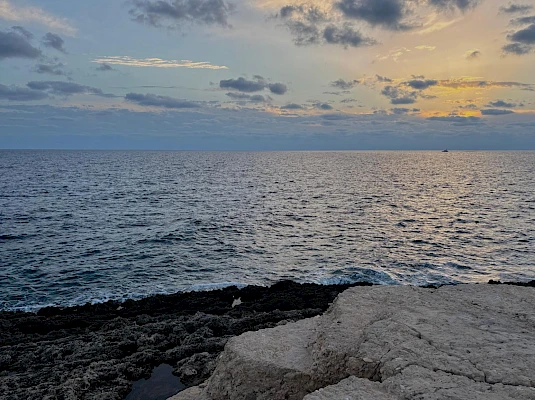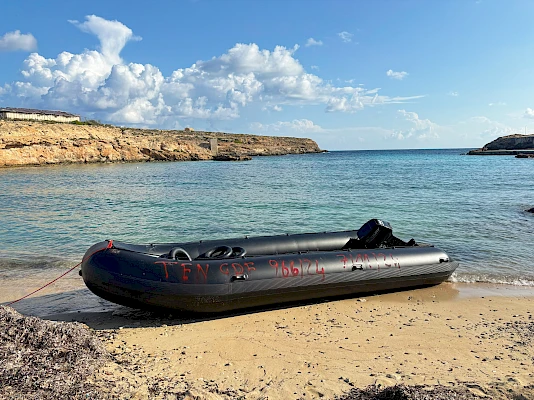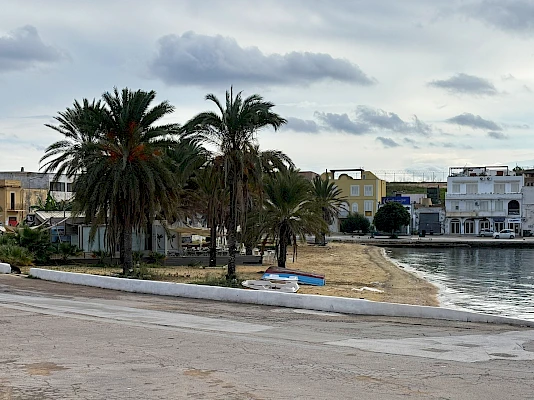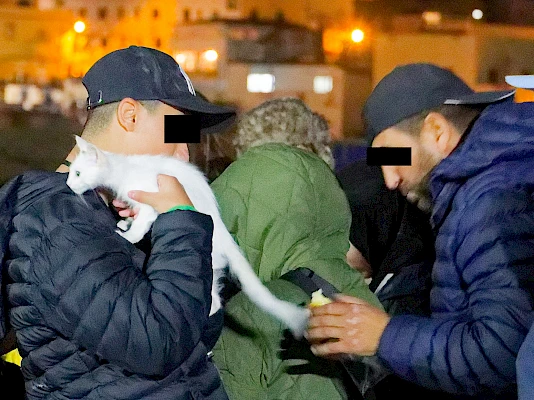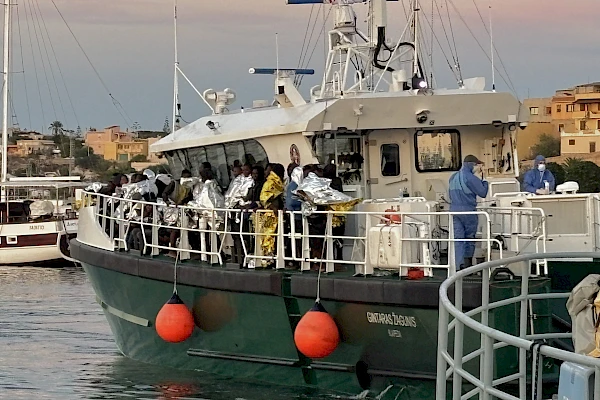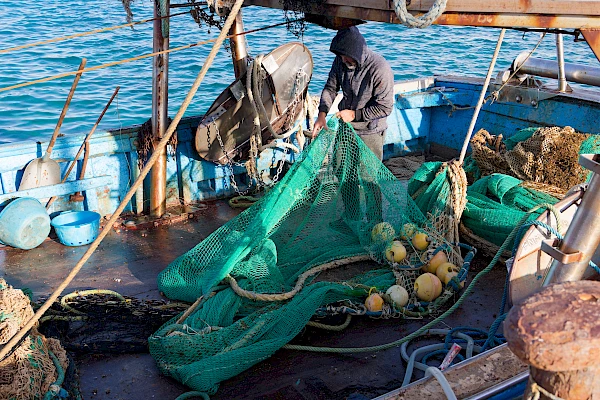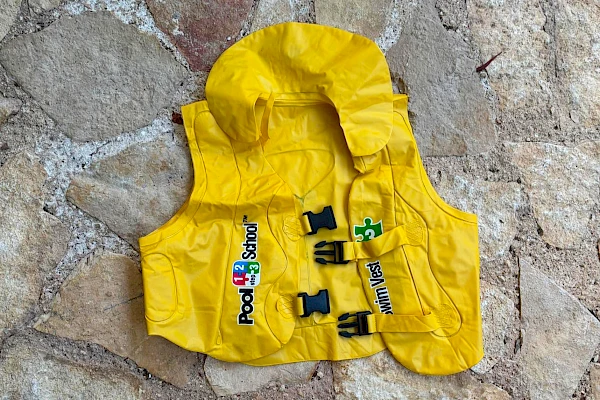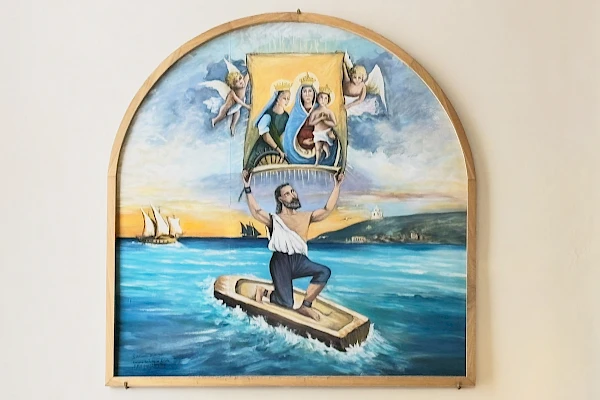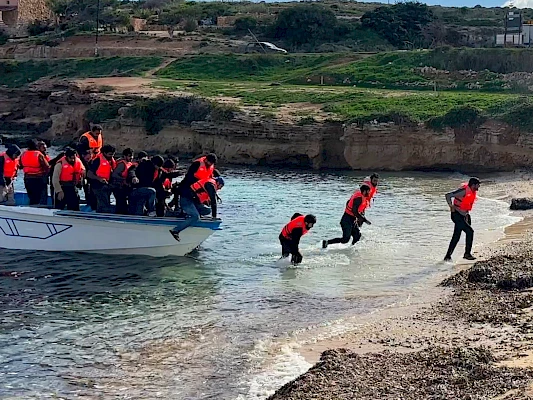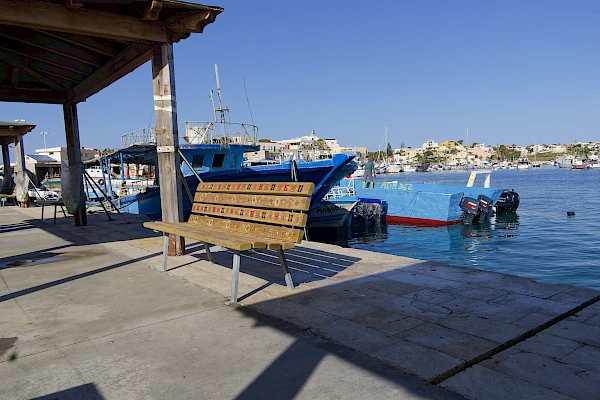Tanja Boukal’s Lampedusa Project, a year-long endeavor in 2025 as part of Agrigento 2025 | Capitale Italiana della Cultura, unpacks this intricate interplay and positions Lampedusa as a microcosm of the European Union’s broader challenges.
At the heart of the project is Lampedusa’s paradoxical identity. In summer, it transforms into a bustling tourist hotspot, straining local resources, even as it continues to function as a frontline for Europe’s migration crises. As one of the southernmost points of Italy, Lampedusa has become a major entry point for migrants crossing the Mediterranean, with its shores often witnessing harrowing arrivals and humanitarian emergencies. Meanwhile, tourism, the primary economic driver for the island, creates its own challenges. During the peak season, the population swells dramatically as thousands of tourists arrive, overwhelming Lampedusa’s water supply, waste management systems, and housing availability. Many of the island’s residents rely on tourism for their livelihoods, yet the industry’s seasonal nature often leads to economic instability. This dual reliance on tourism and migration underlines the tensions between growth and sustainability, forcing the community to navigate these conflicting demands.
The ancient Greco-Roman concept of Hospitium plays a guiding role in the Lampedusa Project, emphasizing the sacred bond between host and guest. This principle illuminates the nuanced relationships between locals, migrants, and tourists. By foregrounding Hospitium, Boukal invites audiences and participants alike to reconsider Lampedusa not merely as an island but as a living reflection of Europe’s shared humanity, ethical responsibilities, and collective choices.
Approach and Focus
Boukal’s approach to the Lampedusa Project emphasizes immersion and collaboration. By spending extended periods on the island, she forges meaningful connections with its residents and gains a deeper understanding of their lives. Her methodology weaves together creative activities, community engagement, and research. Workshops bring together diverse groups—residents, migrants, and visitors—to exchange stories and create collectively, fostering connections that bridge divides. Collaborations with local organizations anchor her work in Lampedusa’s daily realities, while historical and social research with experts enriches the project’s exploration of the island’s layered identity. These combined efforts ensure that the project reflects Lampedusa’s past and responds to its present challenges.
Lampedusa as a Microcosm of the EU
Lampedusa stands as a microversion of Europe—a space where migration, tourism, and sustainability intersect. The island’s duality, as both a haven for migrants and a tourist destination, reflects Europe’s tensions around inclusion, resource allocation, and solidarity. These contrasts are especially stark during the summer months, when the island’s small community of 6,000 residents is inundated by tourists, exposing the fragile balance between its roles. Additionally, Lampedusa’s location at the heart of one of the world’s most dangerous migration routes places it at the center of heated debates on European border policies and asylum systems. Incidents such as the 2013 shipwreck, which claimed over 300 migrant lives, have turned the island into a symbol of both the tragedy of migration and the inadequacies of European responses.
Tourism also highlights stark inequalities. While it provides crucial income, many residents struggle with the environmental and social impact of mass tourism, including overdevelopment and the loss of public spaces. Seasonal employment in the sector creates economic precarity for locals, while the influx of short-term visitors often leaves little room for long-term sustainability planning. These pressures illustrate the broader challenges facing Europe in balancing economic growth, environmental stewardship, and social equity.
Boukal’s project ties these realities to her previous works on fortified borders and human resilience, such as The Melilla Project and The Aegean Project. By situating Lampedusa within this broader Mediterranean narrative, she invites audiences to consider the interconnectedness of local and global challenges, questioning how Europe can move toward a more compassionate and sustainable future.
An Invitation for Reflection
The Lampedusa Project is a work-in-progress, evolving throughout 2025 to reflect the island’s realities and the voices of its people. Through her artistic practice, Tanja Boukal reframes Lampedusa as more than a remote island—it becomes a symbol of Europe’s shared challenges, choices, and humanity. This project challenges audiences and participants alike to rethink their understanding of hospitality, responsibility, and the delicate balance between the past, present, and future.
